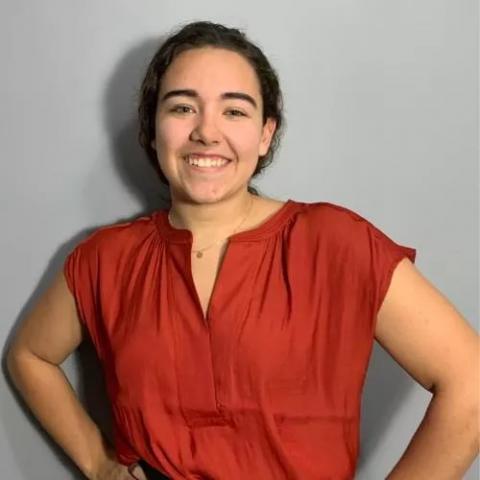Atlas: A Look Into UNH's Map for Zero Waste
At UNH, sustainability is an important part of campus development. One of only ten universities in the nation to earn a Platinum STARS rating, UNH is ranked with the 5th highest score. And there's more to do! In recent months, the University has taken steps to expand its initiatives, partnering with Atlas to develop a zero waste proposal and timeline. In an interview with Pheobe Adame '23 (Environmental Science and Sustainability), a zero waste intern at the Sustainability Institute, she shares the vision for working with Atlas, as well as the progress made on the project so far.

Phoebe Adame '23, Environmental Science and Sustainability Dual Major
What is Atlas? What are you trying to accomplish with it?
Atlas is a zero waste assessment and certification. It is operated by Post Landfill Action Network (PLAN), a nonprofit that was started right here at UNH. I believe Atlas is a partner with AASHE STARS, a national sustainability certification in which UNH has the highest possible (“Platinum”) rating. Atlas was created as a three-step process for universities like UNH to map out a path to operating in a way that creates zero waste. It was designed to help train and involve students as facilitators and leaders in that “mapping” process. This is creative, innovative work; currently there are really NO good models for universities (or other complex institutions) to operate without creating waste. And though UNH is one of the most sustainable universities in the country, waste creation and disposal is still an area in which we are struggling to “live into” our sustainability aspirations. So, Atlas takes us through a three-step process of assessment, visioning, and planning. At the end that process, which may take another year, the Atlas team will have created a zero waste proposal to make UNH zero waste by a planned timeline. We will bring that proposal to UNH leadership, with the hope that they will adopt it and begin fundraising.
How did you get involved with the project? What is your role in working on Atlas?
For the past 2 years, I worked with Trash 2 Treasure. 11-12 years ago was the first T2T sale, and this event was the first stepping stone in starting the non-profit, PLAN. Through this relationship, I worked closely with the founder of PLAN, Alex Freid. He introduced the Atlas program to me, and I was immediately interested. I wanted to help UNH reach zero waste. I am currently one of 2 Atlas Fellows, and we operate as facilitators for stakeholder conversations to gather a vision for a zero waste UNH. This vision, when completed later this academic year, will show all the things that would need to be changed or added to the university for it to become zero waste.
What excites you about it?
As a senior, I am excited to leave the University with a project that will continue when I’m gone. Also, I have been very excited to see all the energy that the stakeholders have put into this project so far. Everyone seems excited, which means that this project has momentum!
How has progress been so far? Is there a timeline?
Last semester there was an assessment done by other SI (Sustainability Institute) interns. That was Stage 1. We are currently in Stage 2, which involves bringing many staff and faculty from across campus together to brainstorm what is possible and what is needed, to make UNH truly “zero waste.” We have completed most stakeholder meetings and are currently working on creating the vision document, putting together what the stakeholders have discussed. Next semester, and the following one, will be Stage 3. That will be the final step before making the proposal, where we put together all the numbers.
What are biggest challenges you’ve faced with this project?
The biggest challenge with this project has been finding a time to meet with all the stakeholders. With everyone’s schedule so different and filled with other things, it can be hard to find a time. Although we still have a few meetings to schedule, so far, we have found solutions to this scheduling challenge.
Is there anything you’d like to share with students about Atlas?
I love that Atlas is a place that brings students into a leadership role. It would probably be easiest for PLAN to do things on their own and not interact with students at all, but this has not been the case. A key component to PLAN and the Atlas process is bringing students into the process and encouraging action.
Stay tuned to learn more about the project!